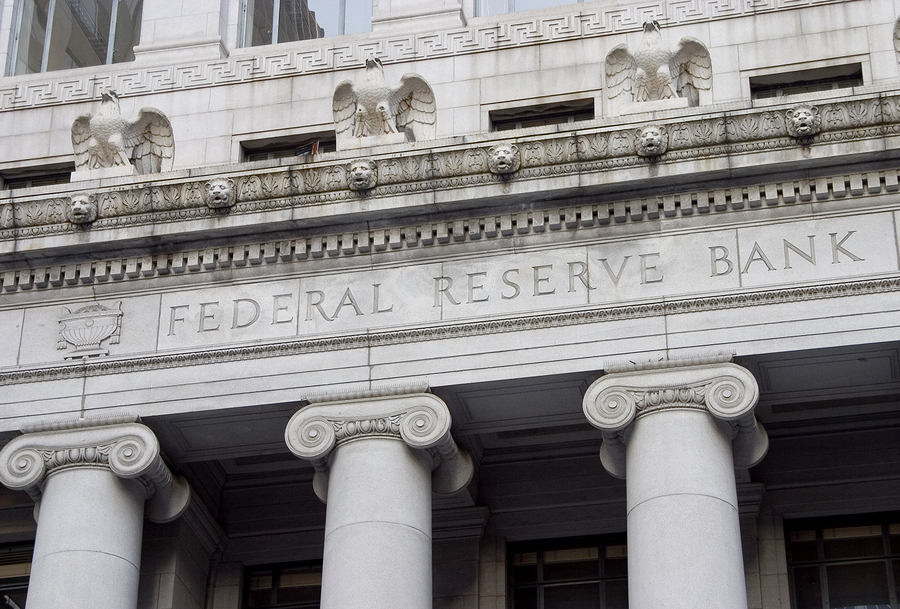 Skeptics aren't so sure the Fed all be able to predict another imminent financial crisis.
Skeptics aren't so sure the Fed all be able to predict another imminent financial crisis.
Seven years after the financial crisis of 2008 in the US, skeptics are concerned about the
inability of the Fed to be able to effectively prevent another financial crisis in the foreseeable future.
Most economists would agree that taking steps to prevent another financial crisis would be the sensible thing to do. But we have yet to see a solid way to figure out how to achieve this sizeable endeavor.
While the Fed has publicly committed itself to focusing on keeping a stable financial system and profitable organizations, such a goal has yet to be attained.
Preventing another economic crisis has not only always been on the table since 2008, its importance has increased as a result of the Fed's decreased ability to adequately respond to a crisis outbreak. With interest rates expected to stay below historic norms for the next few months, there is less room to slash rates - an act that has traditionally been the first thing the Fed does in an effort to avert a crisis.
While the Fed has a huge responsibility in keeping another financial debacle at bay, many believe that it simply does not have the tools needed to accomplish such a feat.
Minimizing Economic Booms in the Name of Crisis Prevention
Obviously, crises are bad for the economy, but they tend to occur following a bubble. Preventing such bubbles would in theory also prevent a financial catastrophe. Yet popping these bubbles could mean quashing valuable economic booms as well.
It's as if the Fed will need to choose between how much economic growth would need to be sacrificed in the name of preventing another financial crisis such as that of 2008 happening again in the future.
Yet
only about one-third of economic booms end in crashes, according to a study conducted by the International Monetary Fund in 2012. The others instead created permanent financial advantages. However, it's simply an extreme challenge for regulators to be able to accurately predict an impending crisis. Identifying early warning signs is a real feat.
Even if popping economic bubbles was the answer, many are not confident that the Fed has the power to do so. With so few economic tools in the American arsenal, the US institutional set-up of today would probably fail in an attempt to prevent a crisis from happening in the first place. And if we were to find ourselves in the epicenter of a crisis, many believe the Fed would simply crumble under the pressure.
Impose Regulations or Manipulate Interest Rates?
With the perceived inability for the Fed to accurately predict and prevent another financial crisis, officials are taking steps to enforce regulations in order to help strengthen the economic system. And one of the ways in which they are doing this is by tightening the limits on banks' dependence on borrowed capital.
 Does the Fed have the tools necessary to prevent another economic crisis like the one experienced in 2008?
Does the Fed have the tools necessary to prevent another economic crisis like the one experienced in 2008?
Yet many other officials believe that the best way to keep the US financial markets stable is by increasing and decreasing interest rates. According to Federal Reserve Bank of New York President William Dudley, preventing a single regulator from being able to administer
macroprudential tools widely enough is unlikely because the regulatory structure is scattered.
Raising interest rates in the interim could help curb concerns from skeptics, but Fed chairwoman, Janet L. Yellen isn't likely to take such steps. She's been
highly conservative when it comes to taking drastic measures up to this point, so there continues to be speculation about the idea that Ms. Yellen would in fact raise rates simply as a mechanism to appease the skeptics.
However, cynics continue to doubt the idea that raising interest rates is more effective at dealing with risks to the economic system than implementing new regulations. Even so, skeptics still aren't convinced that current regulations would be effective, and are in constant search for other policies that may be the answer.
If an industrialized economy like that of the US has a
tough time continuing to rebound from the 2008 financial crisis, it won't be able to adequately fight negative global shocks, including the debacle in China. And if another recession were to occur, policymakers lack the tools to respond.
Much like any other situation when things go awry, there is a debate between those who believe staying the course is called for, and those who believe a significant correction needs to take place.
As we continue to work towards getting back to a pre-financial crisis economy, it remains more important than ever for financial institutions that are directly affected by a struggling economy and a restricted loan market to seek guidance and support from advisors who constantly have their finger on the pulse of the goings on in the loan market.
At Garnet Capital, that's precisely what we do. Considering the fact that we are not 100 percent out of the woods just yet following the economic debacle of 2008, and that there is skepticism about the ability of the Fed to predict and prevent another crisis in the near future, collaborating with professionals in the banking and lending world is warranted.
Find out how we can strengthen your financial institution's position in the loan market by
signing up for our newsletter today.






